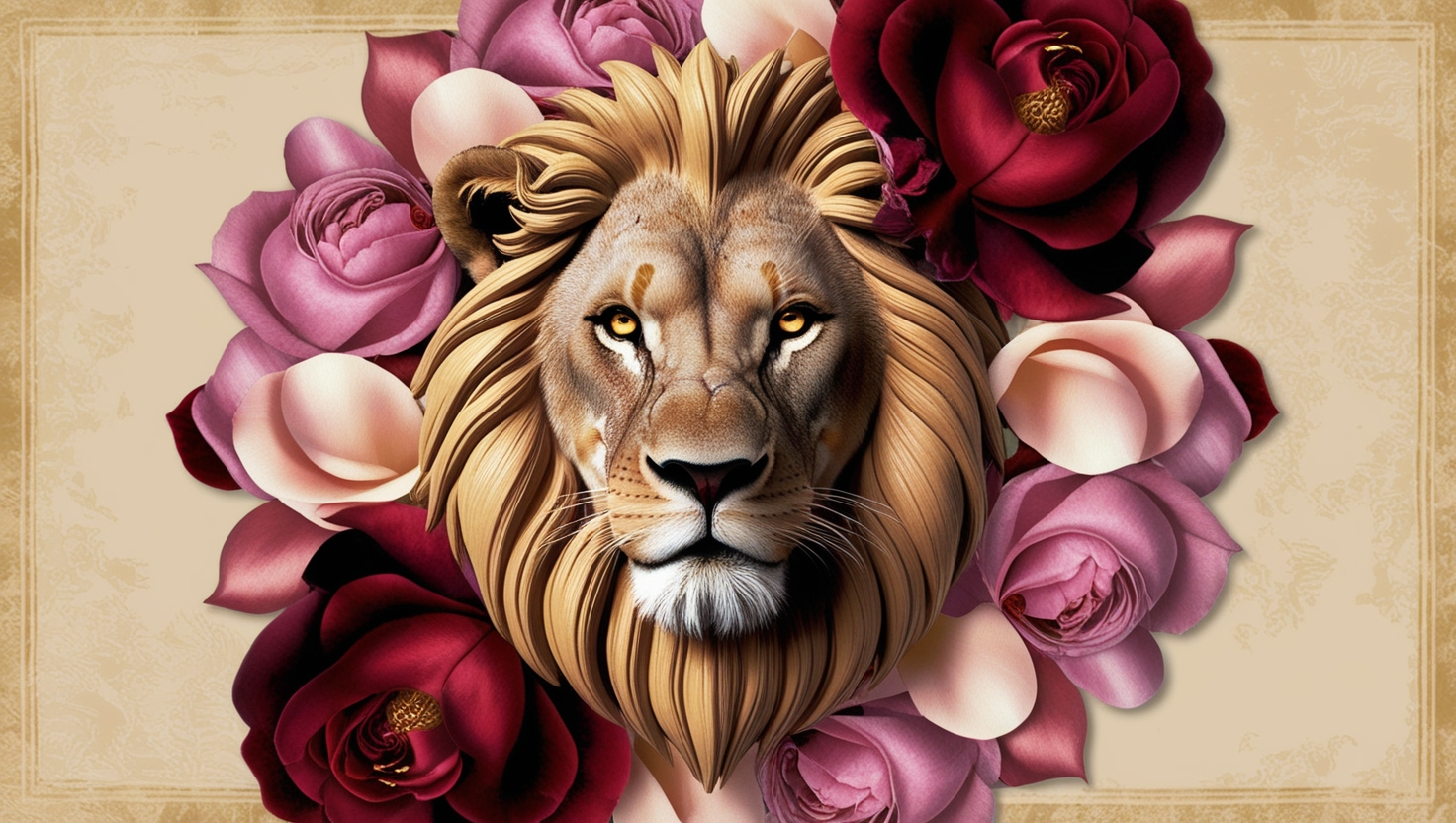Introduction
The phrase “a rose and a lion Gracques” sparks vivid imagery and intriguing symbolism, blending themes of beauty, strength, and historical resonance. The rose symbolizes elegance and passion at its heart, while the lion embodies courage and leadership. When tied to “Gracques,” it evokes ideas of reform, resilience, and sacrifice, much like the enduring legacy of the Gracchi brothers of ancient Rome. This phrase invites a deeper exploration of how ideals of beauty and power intersect with transformative movements. Ultimately, “A Rose and a lion Gracques” captures the essence of boldness softened by grace in pursuing lasting impact.
Symbolism of Beauty and Strength
The phrase “a rose and a lion Gracques” beautifully contrasts two powerful symbols: the rose, representing beauty and fragility, and the lion, embodying strength and courage. This fusion mirrors the Gracchi brothers, who sought social reform while navigating the delicate balance of power. The rose’s thorns remind us of the sacrifices needed for actual change, while the lion’s courage speaks to the unyielding pursuit of justice. Together, they encapsulate the essence of leadership intertwined with vulnerability.
The Rose: Delicate Yet Powerful
In “A Rose and a Lion Gracques,” the rose metaphorically represents the vulnerability often accompanying powerful movements. Just as a rose must be tended with care, the reforms pushed by the Gracchi brothers needed nurturing amidst opposition. The rose’s thorns represent the dangers and risks of challenging the status quo. Thus, the rose symbolizes both beauty and the painful necessity of growth.
The Lion: Courage in the Face of Adversity
The lion in “A Rose and a Lion Gracques” symbolizes unmatched courage and strength. Just as the Gracchi brothers showed relentless bravery in their political efforts, the lion represents their willingness to face immense opposition. With the lion’s fierce determination, the brothers boldly advocated for the rights of ordinary people, embodying unwavering leadership even in the face of significant challenges.
The Gracchi Brothers and Reform
“A rose and a lion Gracques” also encapsulates the ideals of social reform. The Gracchi brothers, known for their attempts to address inequality, personify the rose’s beauty and the lion’s strength. Their efforts were an act of vulnerability and power, challenging the established Roman order for the betterment of the people. Through their vision, they demonstrated that change requires both delicate care and robust strength to succeed.
The Intersection of Beauty and Power
Combining “a rose and a lion Gracques” creates a powerful image of graceful and formidable leadership. The rose’s softness represents the compassion required for social change, while the lion embodies the strength to make those changes happen. In the Gracchi brothers, these qualities were embodied in their attempts to reform Rome’s political landscape. Their journey shows that authentic leadership requires both gentleness and boldness.
The Gracchi Brothers’ Struggle
In “A Rose and a Lion Gracques,” the Gracchi brothers’ struggle highlights the tension between ideals and execution. The rose symbolizes their noble intentions to help the people, while the lion reflects the fierce opposition they faced. Their attempts at reform were not merely acts of kindness but courageous steps into uncharted territories. The brothers’ story is one of both vulnerability and heroic strength.
Resilience in Leadership
Leadership, as seen in “A Rose and a Lion Gracques,” is about resilience. The rose’s beauty can wilt under pressure, yet it continues to grow in adversity. Similarly, the powerful lion is not invincible, yet its courage remains undaunted. The Gracchi brothers embodied this resilience, fighting against social and political forces to bring about reform, knowing that their cause was fraught with risks and challenges.
The Duality of Reform
“A rose and a lion Gracques” encapsulates the dual nature of reform—its beauty and cost. Social change can appear elegant and romantic like a rose, but like the thorns, it often comes with pain and resistance. The lion’s strength mirrors the determination needed to push through these obstacles. The Gracchi brothers’ attempt at reform embodied this duality, balancing idealism with the harsh realities of political life.
A Legacy of Change
The Gracchi brothers’ legacy is “a rose and a lion Gracques.” With its enduring beauty, the rose symbolizes the lasting impact of their ideas, even if they were not fully realized in their time. The lion’s strength reflects its courage to initiate those changes despite fierce opposition. Together, they form a narrative of bold vision and sacrifice, illustrating the complexities of creating lasting change.
The Enduring Power of Idealism
In “A Rose and a Lion Gracques,” the combination of the rose and the lion speaks to the enduring power of idealism. Despite its fragility, the rose symbolizes the beauty of ideals, while the lion’s strength reflects the energy required to defend those ideals. The Gracchi brothers represented the balance between holding onto a dream for social equity and the strength needed to pursue it, no matter the personal cost.
Conclusion
A rose and a lion Gracques” symbolizes the intersection of idealism and strength, reflecting the complex nature of reform and leadership. Like the rose, the Gracchi brothers had a vision of beauty in social justice, aiming to create a fairer society for ordinary people. However, like the lion, their journey required immense courage and resilience in harsh opposition. Their story highlights that the path to meaningful change is rarely easy, requiring both the softness of compassion and the strength of determination. “A Rose and a lion Gracques” ultimately teaches us that authentic leadership is a delicate balance between ambition and strength, beauty and courage, in the fight for what is right.
